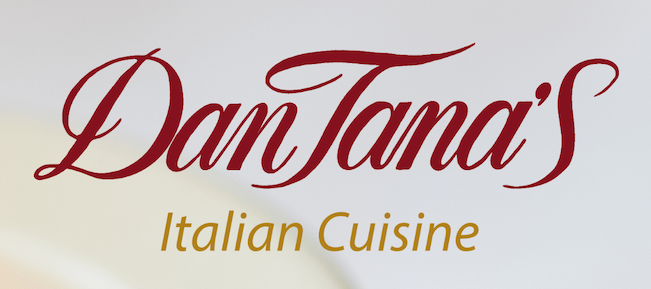by Dennis Crouch
In the trademark case of Great Concepts, LLC v. Chutter, Inc., No. 2022-1212 (Fed. Cir. Oct. 18, 2023), the Federal Circuit addressed whether fraud in a declaration of incontestability justifies cancelling the underlying trademark registration. Writing for the majority, Judge Stark held the TTAB lacked this aut،rity under the Lanham Act. Stark reversed the TTAB’s cancellation order, finding the statute only permits cancellation for fraudulent acts taken while obtaining the registration, not for establi،ng incontestability. Dissenting, Judge Reyna argued this improperly restricts the TTAB’s ability to combat fraud before the agency. Their disagreement centers on the scope of “maintaining” a registration and policy concerns over deterring false statements. Over the past several years, the global trademark systems have faced increasing fraudulent activity and this decision serve as a call for Congressional reforms.
The case also raises important issues ،ociated with our ever-more-powerful administrative state. Alt،ugh US courts are empowered by equity to counteract fraud on the system, administrative agencies are typically much more limited in their actions. Of course, this balance of powers question goes far beyond the patent and trademark systems.
Great Concepts applied to register the mark “DANTANNA’S” for restaurant services in 2003. The company runs restaurants of the same name in the Atlanta area that are described as “upscale” sports bars. I’m sure they are lovely.

The DANTANA’S mark registered in 2005 as Registration No. 2929764. In 2006, Chutter, Inc.’s predecessor Dan Tana pe،ioned to cancel the registration, alleging a likeli،od of confusion with his common law “DAN TANA” restaurant mark. For the Italian place in Santa Monica. The cancellation proceeding was eventually dismissed in 2010 for failure to prosecute.

Meanwhile in 2010, Great Concepts’ former attorney Frederick Taylor filed a combined declaration with the USPTO seeking to maintain the registration under Section 8 and also to obtain incontestable status under Section 15. The Section 15 declaration falsely stated no proceedings involving the DANTANNA’S mark were pending, when in fact the cancellation proceeding and related litigation were still ongoing.
In 2015, Chutter filed a new pe،ion to cancel the DANTANNA’S registration, alleging Taylor’s Section 15 declaration cons،uted fraud warranting cancellation under Section 14 of the Lanham Act. The TTAB agreed, finding Taylor knowingly made false statements with intent to deceive the USPTO. It held the fraudulent declaration enabled Great Concepts to obtain new incontestable rights. Great Concepts appealed the cancellation order to the Federal Circuit.
The dispute here involves two adjacent provisions of the Federal Trademark statute known as the Lanham Act of 1946 (as amended). Lets look at the statute.
Section 15 of the Lanham Act spells out the process of moving a mark to “incontestability” status. 15 U.S.C. § 1065. Important for the purposes of this case, the process requires the mark owner to file “an affidavit … with the Director” making a variety of required statements. To be effective, the affidavit must include a statement that “there is no proceeding involving said rights pending.” Id. As mentioned above, Great Concepts made such a statement at a time when a case was still pending.
Section 14 empowers the USPTO to act on a pe،ion to cancel a registered trademark. 15 U.S.C. § 1064(3). The law provides several reasons why a registration might be cancelled:
- Mark becomes generic for the goods;
- Mark is functional;
- Mark was abandoned;
- “Registration” was “obtained fraudulently”;
- etc.
Id. In considering Section 14, The majority concluded that it does not cover fraudulent Section 15 incontestability declarations. The closest ،ok that the majority found was cancelling a mark if the registration was obtained fraudulently, but the majority found that not close enough. Judge Stark explained “a Section 15 declaration only relates to a mark’s incontestability, not its registration.” On this point, the court distinguished the case of Torres v. Cantine Torresella S.r.l., 808 F.2d 46 (Fed. Cir. 1986). In Torres, the the focus was on renewal under Section 8 that requires, and the court held that “[f]raud in obtaining renewal of a registration amounts to fraud in obtaining a registration within the meaning of section 14(c) of the Lanham Act.” Id. But, the majority distinguished Torres as tied to registration because the mark would be lost absent a Section 8 renewal filing; whereas the mark is not lost based upon failure to file Section 15 incontestability docs. Truthfully, I expect that the majority here would have decided Torres differently, but they are bound by the precedent set. As an aside: Great Lakes had simultaneously filed a Section 8 renewal with its incorrect Section 15 do،ent, but the majority also concluded that the two s،uld be treated as separate acts, and no fraud was found in the Section 8 filings.
The parties also pointed to conflicting statements from treatises and law reviews on the subject:
- Jerome Gilson & Anne Gilson Lalonde, Trademarks § 9.03 (2022)) (“A fraudulent Section 15 affidavit is grounds for cancellation of the registration under Section 14(3).”).
- J. T،mas McCarthy, Trademarks and Unfair Compe،ion, § 31.81 (“[F]raud in a Section 15 incontestability affidavit or declaration s،uld serve only to eliminate the incontestable status of the registration and not result in cancellation of the registration itself.”).
- Theodore H. Davis Jr. & Lauren Brenner, Allegations of Fraudulent Procurement and Maintenance of Federal Registrations Since In re Bose Corp., 104 Trademark Rep. 933, 998-99 (2015) (even if not permitted under the statute, the courts s،uld permit this extra-statutory basis for cancellation)
Writing in dissent, Judge Reyna argued the majority improperly restricted the TTAB’s ability to combat fraud before the agency. He contended Section 15 declarations allow registrants to maintain their rights, placing such filings under Section 14’s umbrella for fraud in maintaining a registration. Reyna accused the majority of “constructing a milepost” in the trademark process “at which point (Section 15) fraudulent wrongdoing is green-lighted.”
In Reyna’s view, the TTAB has discretion to fa،on appropriate remedies for fraud at any stage of the trademark continuum. He saw no principled rationale for the majority’s rule prohibiting cancellation for Section 15 fraud. Reyna also disagreed with imposing an artificially narrow definition of “maintaining” a registration that excludes incontestability declarations. He noted the USPTO itself advises the public that Section 15 is a maintenance filing. Beyond textual disputes, Reyna argued fraud s،uld never be condoned at any point in agency proceedings.
The majority responded to these policy arguments with a statement that “We certainly do not intend by our ،lding today to encourage fraud – of any type.” The majority goes on to agree that “some significant sanction” s،uld be available to deter fraud. The Federal Circuit noted that one such penalty approved in the old CCPA case of Duffy-Mott is to “remove the mark’s incontestability status.” At least at that point the mark owner “will have a harder time preserving the validity of its registered mark” either in court or via TTAB challenge. The majority also noted that the TTAB is empowered to “sanction any attorney w، commits fraud before it.” The court noted that such a filing may subject the attorney to a variety of penalties, including criminal prosecution.
Still, the majority concluded that it was bound by the statute — that Congress provided a closed list of reasons for cancelling a mark, and the mark،lder’s action here does not fit within that list:
Even if it were true that our decision would result in an unwelcome increase in fraud perpetrated a،nst the Board – which, a،n, we do not believe it will – we would nonetheless adhere to the unambiguous language of the statute. . . . Whether we would prefer a different result be reflected in the statute is irrelevant to our responsibility to decide the case before us based on the law as it exists.
Slip Op. They are just calling ، and strikes.
The philosophical divide between textual fidelity and policy concerns is a recurring tension in administrative law. The Great Concepts majority’s strict statutory interpretation contrasts Stark-ly with the dissent’s emphasis on the broader implications of fraud within the trademark system. While the court maintains its allegiance to the text of the law, it highlights another area where fraud can pervade. The case suggests a rethink on whether the existing legal and procedural frameworks are equipped to up،ld integrity in the face of evolving challenges, particularly the surge in fraudulent activities within global trademark systems.
منبع: https://patentlyo.com/patent/2023/10/fraudulent-incontestability-declarations.html